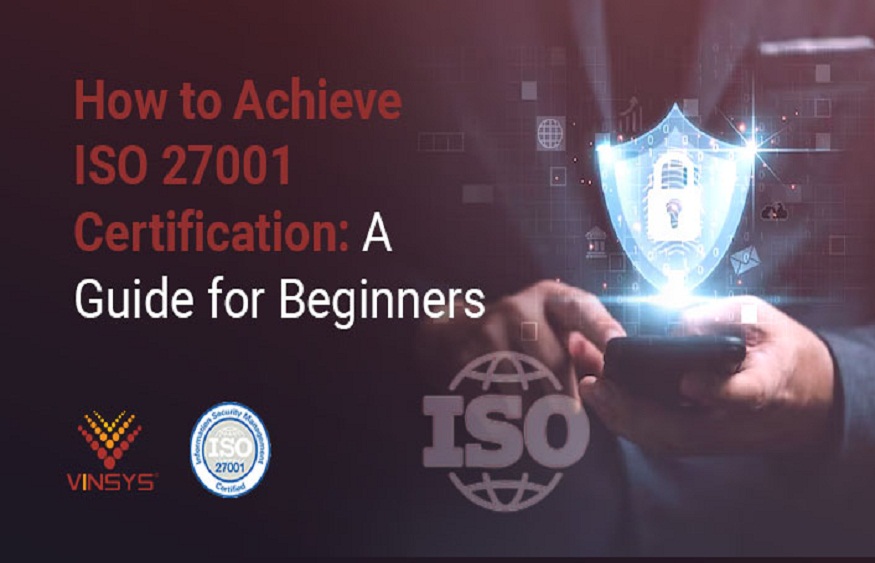In today’s digital age, information security has become paramount for organisations worldwide. ISO 27001 Certification represents a globally recognised standard for Information Security Management Systems (ISMS). As businesses in India and across the globe increasingly recognise the importance of data protection, obtaining ISO certification in India has become a strategic priority for many organisations.
Understanding ISO 27001
ISO 27001 is an international norm that gives guidelines on how to set up, implement, maintain, and continually enhance an Information Security Management System. In this approach, organisations can maintain their sensitive information through comprehensive risk management and security controls. Additionally, it provides organisations with a tested methodology to ensure that their digital assets are protected from cyber threats and security issues that evolve with time.
Main Elements of ISO 27001
This standard comprises several important elements that constitute a robust structure for information security. Such important elements include information security policies outlining the approach followed by the organisation in managing information security and specifying relevant guidelines and responsibilities with all stakeholders involved. This standard also comprises risk assessment and risk management processes, implementation of security controls, and comprehensive documentation requirements. Detailed control objectives and controls involving all matters about information security management are also included in this standard.
Advantages of ISO 27001 Certification
ISO 27001 Certification has a multitude of advantages for organisations. It enhances the security posture since there is an organised approach to identifying and managing risks related to information security. Organisations gain a competitive advantage since they can display their concern about information security, thus creating confidence among clients and partners. Certification also assists in the legal and regulatory compliance process, or rather, enhances the organisational process. The target of the ISO 27001 Certification is also to help an organisation achieve a good security culture, which, more importantly, demonstrates a commitment to protecting stakeholder information.
The Certification Process
The process of getting certified involves some crucial steps. It begins with an initial audit of the existing security practices against the requirements of ISO 27001, followed by implementing necessary policies and procedures, then having internal audits to check the compliance status, followed by the certification audit from the accredited body. The process continues with checks for ongoing compliance and effectiveness through surveillance audits. An audit typically includes looking into documentation, interviews with staff, and a thorough review of security controls and practices put in place.
Integration with Other Standards
The ISO 27001 integrates well with other management systems and compliance requirements. The practice of integrating the various needs while maintaining the core element of information security is therefore possible. Different sectors can use the basic requirements to suit their specific demands. This flexibility opens up avenues for the development of a single management system that fulfils multiple compliance requirements with minimal redundancy in operations.
Cost Considerations and Business Growth
With ISO 27001, it is important to recognise that investment is indeed required, but the long-term benefits typically will outweigh these costs in the form of improved efficiency and reduced risk as the organisation expands. Growing complexity in the case of expanding organisations can be managed better with the structured approach in place under ISO 27001. There are also business opportunities presented through certification for helping an organisation retain competitive advantage in world markets through demonstrated security commitment.
Implementation Best Practices
Management commitment is strong and includes leadership support and resource allocation in order to ensure successful implementation. Employee engagement is ensured through training and awareness programs that will make all the staff understand their roles. Continuous improvement through constant monitoring and updates helps the security management system to remain effective. Continuous security assessments and feedback loops ensure that it continues to be relevant and effective with time.
Global Business Impact
In an interdependent world, ISO Certification in India has become an added impetus for organisations trading internationally. The certification is a promise towards international standards and best practices in the management of information security. It forms the universal language with respect to security practices and facilitates international relationships in business coupled with cross-border data protection compliance.
Risk Management Approach
A risk-based approach would enable organisations to identify potential information security threats. It would further aid the conception of detailed vulnerability analyses for current security controls alongside deploying adequate security controls based on adequate risk assessment outputs. This structured approach would be central to ensuring that ample resources are aligned towards addressing some of the contemporary security risks currently posing a challenge to the organisation.
Future Trends
The path of technology and growing security threats are constantly sculpting the method of implementing ISO 27001. This will include security challenges in the implementation and management of cloud computing environments, security measures in distributed workforce scenarios, and applying security measures to emerging technologies such as AI and machine learning. Organisations should also evaluate new emerging threats from quantum computing as well as advanced persistent threats.
Measuring Success
Performance measurements and feedback from customers could vary, thereby assessing the ability of their certification. Organisations have general metrics for tracking key indicators of security and programs that measure and assess effectiveness in responding to incidents, besides soliciting input from customers, employees, and partners regarding security practices. Regular benchmarking against industry standards ensures that competitive advantage is sustained with continuous improvement in security practices.
Conclusion
ISO 27001 is one of the main building blocks for the development of a robust Information Security Management System. Organisations seeking professional guidance and accreditation services can seek help from INTERCERT, which is still the leading certification body in providing full-fledged services within the certification process. With the proper implementation and maintenance of this certification, security measures are developed, and what is also crucial for a business’s success and stakeholder confidence is guaranteed. This internationally recognised standard provides a comprehensive framework for protecting sensitive information assets, ensuring data integrity, and mitigating cyber risks.
By adopting ISO 27001, companies demonstrate their commitment to best practices in information security, enhancing their reputation and competitive edge in today’s digital landscape. The certification process involves a thorough assessment of an organisation’s existing security protocols, identification of potential vulnerabilities, and implementation of continuous improvement strategies to maintain a robust security posture.


